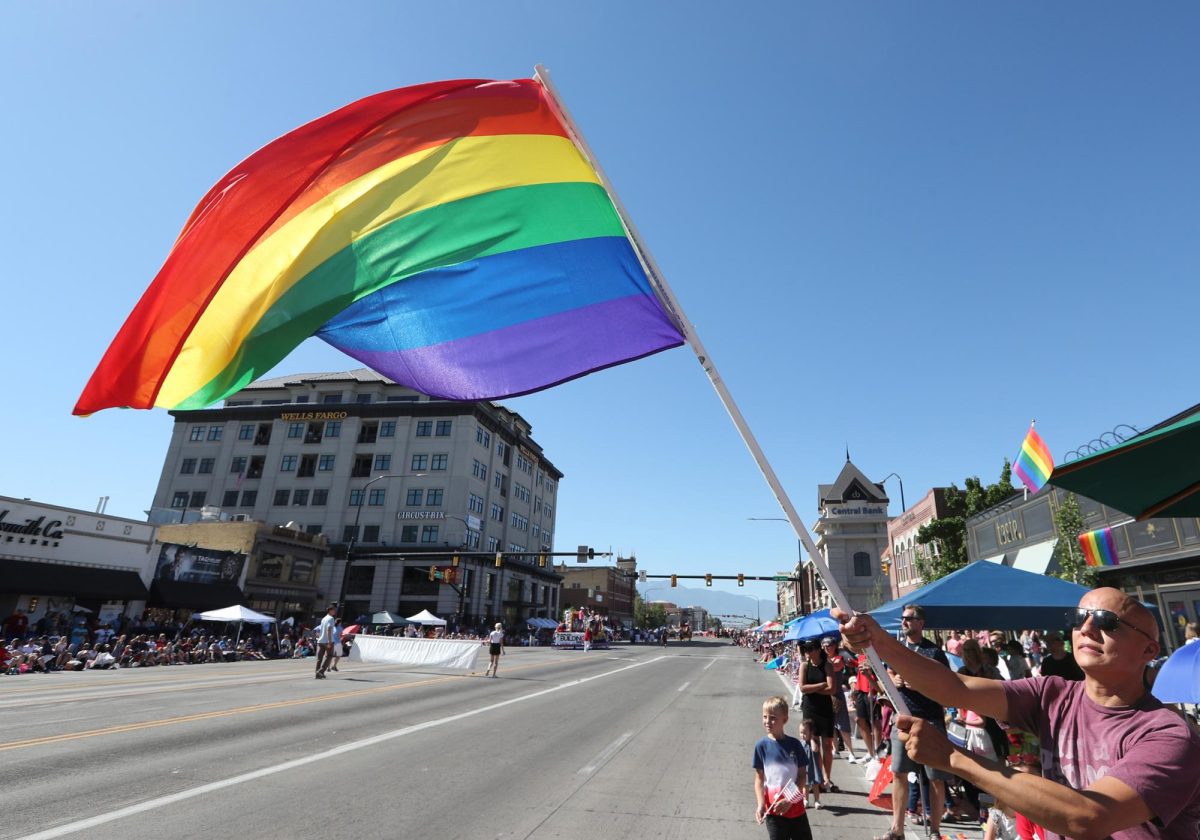Throughout the month of June, I wrote several columns highlighting certain events in the history of the LGBTQ community that have made an impact on where we are today. It’s been 51 years since the Stonewall Riots, and even though things are significantly better than they were in the 1960s, there is still an enormous amount of work that needs to be done.

Over the past decades, the riots demanding equal rights have turned into parades where many gather in honor of those who have fought before us and to also remind people that our rights are still being threatened.
Unfortunately, it is unsurprising that the rights of hundreds of thousands, if not millions, of LGBTQ people around the world continue to be targeted everyday. As of late, it has been the transgender community that has been facing the most wrath from legislators around the country.
Many states in the U.S. have proposed bills that would ban trans girl athletes from participating in something as simple as school-sanctioned sports. Proponents of these laws argue that because trans girls were assigned male at birth, they must have an increased level of testosterone, therefore giving them an unfair advantage in girls’ sports.

Alternatively, opponents of these bills argue that they are transphobic in nature and that they are creating more division than is necessary. Many have gone so far as to say that bills banning trans girls from playing in school sports are just creating a solution to a problem that does not exist.
Republican representatives in Utah proposed House Bill 302 in February of this year that would ban trans girls from playing on girls’ sports teams at their schools. This bill would require public schools to base participation in sports on the sex determined at birth, which would bar transgender students from partaking in sports.
Those in support of HB 302 argued that this bill would help preserve the history of women’s sports. During the House Education Committee meeting in February, some cisgender women athletes voiced their concern about losing their place on their sports teams if transgender women were allowed to play alongside them.
At the same committee meeting, those who were in opposition to the bill voiced their concerns surrounding the constitutionality of HB 302 and the impact it would have on transgender youth if it were to be put in place.

Currently, HB 302 is scheduled to be brought up in the 2022 legislative session because it stalled in the 2021 session in the Senate. There have been other states that have attempted to pass similar legislation to HB 302. Florida and Idaho are the only two states that have successfully passed similar bills. Gov. John Bel Edwards of Louisiana recently vetoed a bill that would ban trans girls from school-sanctioned sports.
Bills such as HB 302 are inherently discriminatory and serve only as vehicles of exclusion. They send the message that certain groups, in this case transgender youth, that they are not worthy of partaking in certain activities in life.
The Trump administration loved to target minority groups, including the LGBTQ community, and often used religion as a reason to single out certain groups. In one instance, the Trump administration submitted a brief to the Supreme Court arguing that organizations funded by taxpayers should be able to turn away same-sex couples and anyone else they deemed was in violation of their religious beliefs.
In this argument, the Trump administration included adoption agencies, saying they should be able to turn away same-sex couples. This came to light with Fulton v. City of Philadelphia, which is a case that challenges the refusal of the Catholic Social Services to place adoptive and foster children in the homes of same-sex couples. CSS is a religious non-profit organization that runs a child welfare system in Philadelphia.

This decision was considered to be in violation of the city’s nondiscrimination ordinance in district court, meaning CSS lost. After this, CSS appealed the court’s decision in the 3rd U.S. Circuit Court of Appeals, but the 3rd court too sided with the lower district court. In response, CSS took the case all the way up to the Supreme Court in February of 2020.
The Supreme Court unanimously voted to overturn the lower court’s decision in this case. It was decided that the city of Philadelphia had violated CSS’s right to free exercise of religion by not including CSS in the foster care program because they refused same-sex couples from fostering and adopting.
The ruling that the Supreme Court gave is entirely unsurprising considering the fact that many of the justices are right-wing conservatives. The ruling in this case not only affects same sex-couples, but the children in the foster system as well. Same-sex couples are more likely to adopt children than heterosexual couples, so the fact that many are barred from doing so in Philadelphia, based solely on religious reasons, is ridiculous.

The Trump administration worked tirelessly to take away the basic human rights of those in the LGBTQ community. I know the Trump administration is no longer in office and no longer has any hold on the country as a whole, but this was happening within these past four years, in a time when we are supposed to be progressing past a 1950s attitude and outlook on the world, but instead, with the policies that Trump and his goonies put in place, we were dragged back many decades in terms of bigotry, discrimination and prejudice.
So, when someone asks why we still need Pride parades, this is why. Our rights are not secure and can be written off at any moment. Conservative legislators around the country are actively trying to take away the basic human rights that LGBTQ people have been given. It’s ridiculous that we have to even fight for the basic right to exist.




















